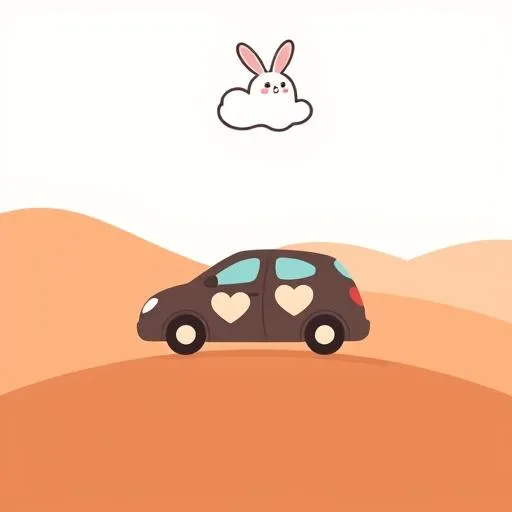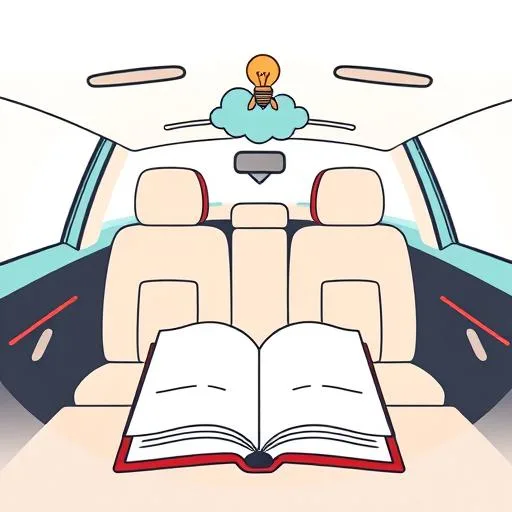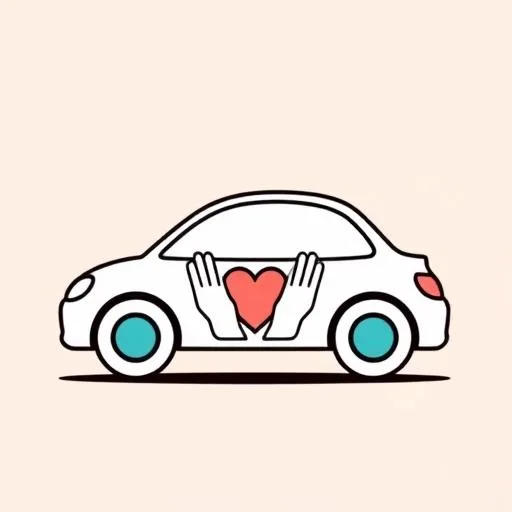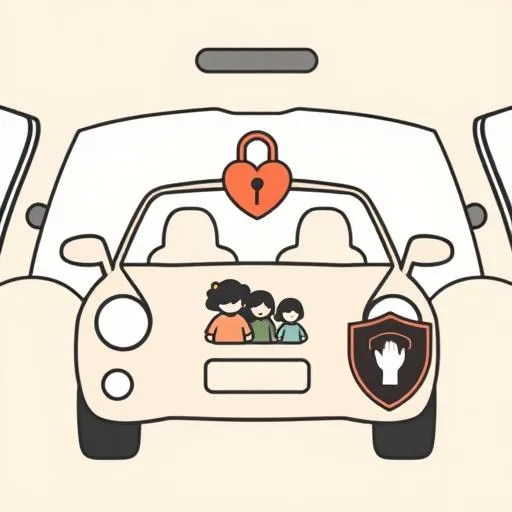
Remember those long family road trips? Sticky backseats, endless ‘are we there yet?’s, windows fogged with little noses pressed against the glass. Now imagine a journey where the car itself becomes your co-pilot—not just handling the steering, but freeing you to truly see your child’s wonder as they point out cloud dragons. The quiet revolution of personal autonomous vehicles isn’t about fancy tech specs; it’s whispering something deeper: What if travel time could transform from chaos to connection?
How Can Cars Become Connected Family Spaces?

Commutes often feel like stolen moments—time we wish we could spend listening instead of navigating traffic. But vehicles designed for personal ownership, like Tensor’s Robocar, reimagine interiors as flexible family sanctuaries. No more rigid front seats; instead, spaces adapt for storytelling or quiet reflection. Picture school runs becoming curiosity labs where you turn toward your child, not the road, and catch their grin as they spot ‘a cloud shaped like Nana’s rabbit’.
Why not try this on your next drive? Turn off screens and ask: ‘What’s one thing you’d invent to make trips more fun?’ Suddenly, those 15 minutes spark imagination instead of eye rolls. It’s not about fancy tools—it’s reclaiming the magic in ordinary journeys.
What Makes Safety Feel Like Holding Hands?

Let’s be real: When kids are in the backseat, ‘safe’ isn’t a buzzword—it’s everything. That’s why innovations like Tensor’s engineering resonate so deeply. They’ve woven redundancies across sensors and power systems, creating layers of safety that echo how we teach our children: ‘Look both ways,’ then ‘ask a grown-up.’
This tech doesn’t replace our instincts; it amplifies them. Like how we’d double-check seatbelts, these cars run constant self-diagnostics. As parents, we know trust grows through small assurances—‘I’ve got you’—whether from us or the gentle hum of a system designed to watch over our precious cargo.
How Do We Keep Family Moments Sacred with Privacy?

Our cars often cradle life’s rawest moments—spontaneous sing-alongs, whispered worries after tough days. Knowing these spaces remain truly private changes everything. Tensor’s privacy-first approach (‘Your Robocar, your data’) isn’t just policy; it’s a promise that family confessions stay between heartbeats, not servers.
With our protected space secured, we’re free to explore meaningful conversation. This quiet assurance lets us model boundaries: ‘In this car, we’re free to be ourselves.’ When kids see tech honoring their vulnerability, they learn trust isn’t given lightly—it’s earned through respect. That’s the foundation for raising humans who navigate both digital and emotional worlds with grace.
How Can We Converse with Curiosity, Not Just Commands?

Imagine a car that doesn’t just obey ‘Turn left,’ but engages: ‘Why do leaves change color?’ That’s agentic AI with multimodal LLMs coming alive. But here’s the parenting win—it turns mundane trips into curiosity playgrounds. Instead of ‘Ask the car for directions,’ try: ‘What question would YOU ask the sky today?’
Let their answers lead—not the AI. When my niece wondered why clouds float, we spent a ride tossing ideas (her theory: ‘They’re sky pillows!’). The car didn’t give the answer; it created space for wonder. Authentic learning blooms when tech serves as a conversation starter, not the finisher.
What’s the Real Destination: Raising Grounded Explorers?
Amid headlines about robot drivers, what actually matters for our kids? It’s not whether the car steers—but what we do with the time freed. With commutes becoming ‘living room on wheels,’ we gain minutes to nurture resilience: ‘Remember getting lost last summer? That’s how we found Grandma’s secret beach!’
The true upgrade isn’t autonomy for the car—it’s reclaiming autonomy for family connection. In a world of agentic AI, the most vital skill we’ll teach isn’t coding—it’s looking a child in the eye and saying, ‘Tell me more.’ Because no matter how smart our cars become, they’ll never replicate the way a child’s eyes light up when sharing something amazing with their favorite person in that passenger seat. That’s the journey worth building toward.
Source: Inside the rise of personal autonomous vehicles: Agentic AI drives the future of robocar design, Silicon Angle, 2025/09/05
